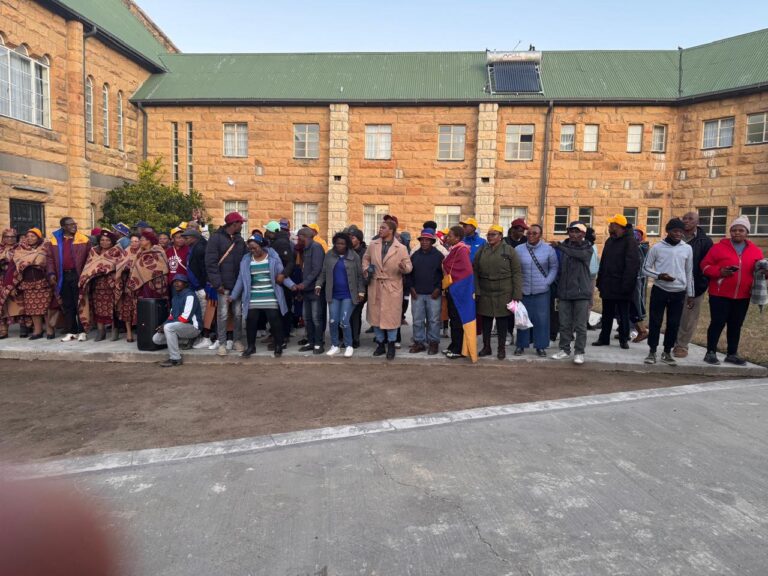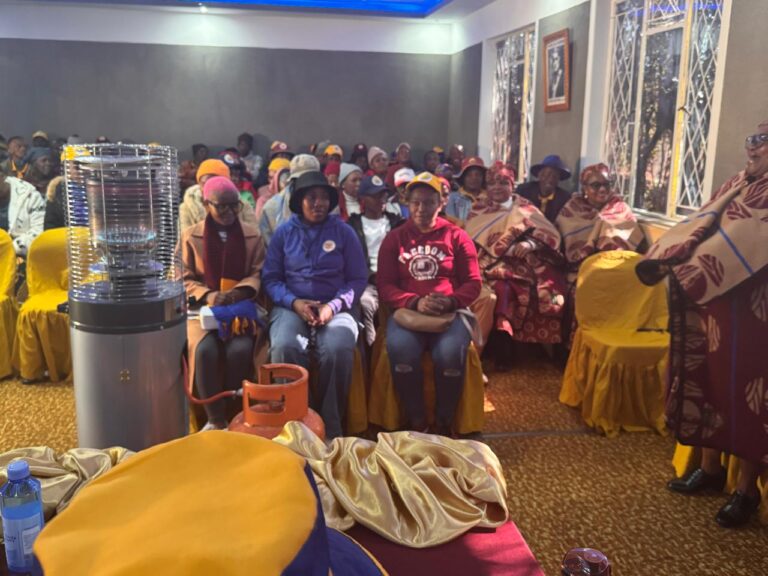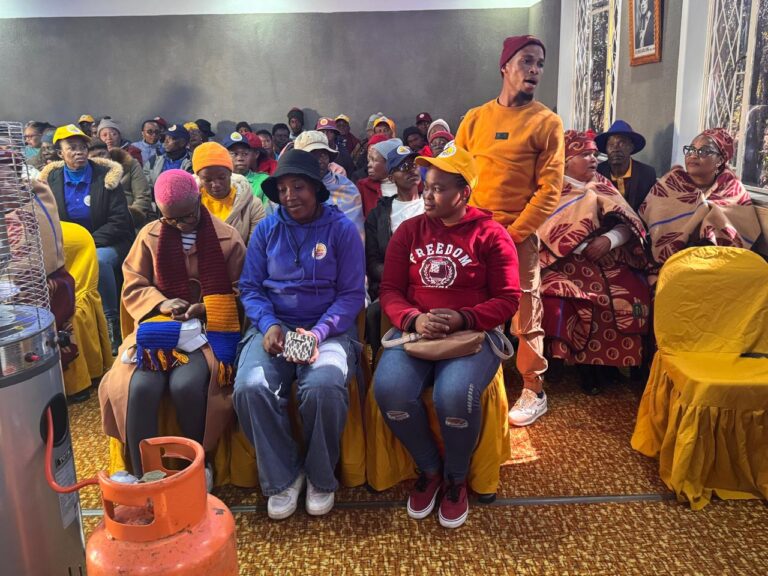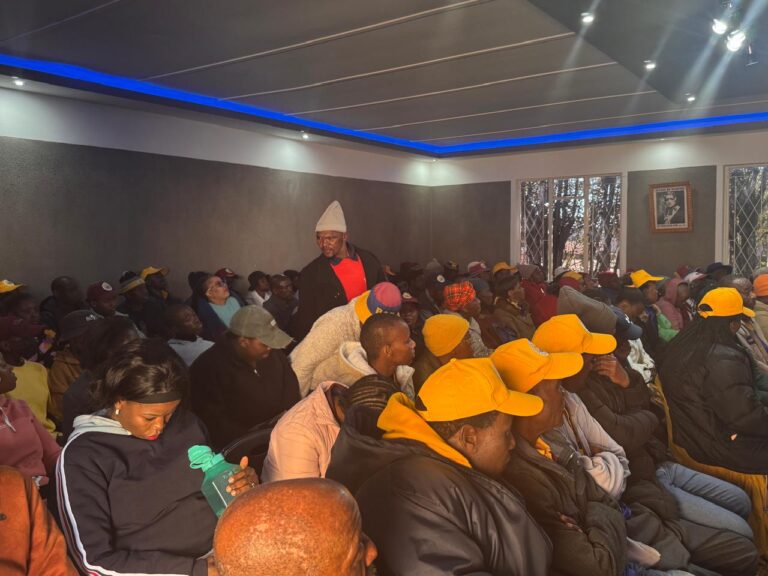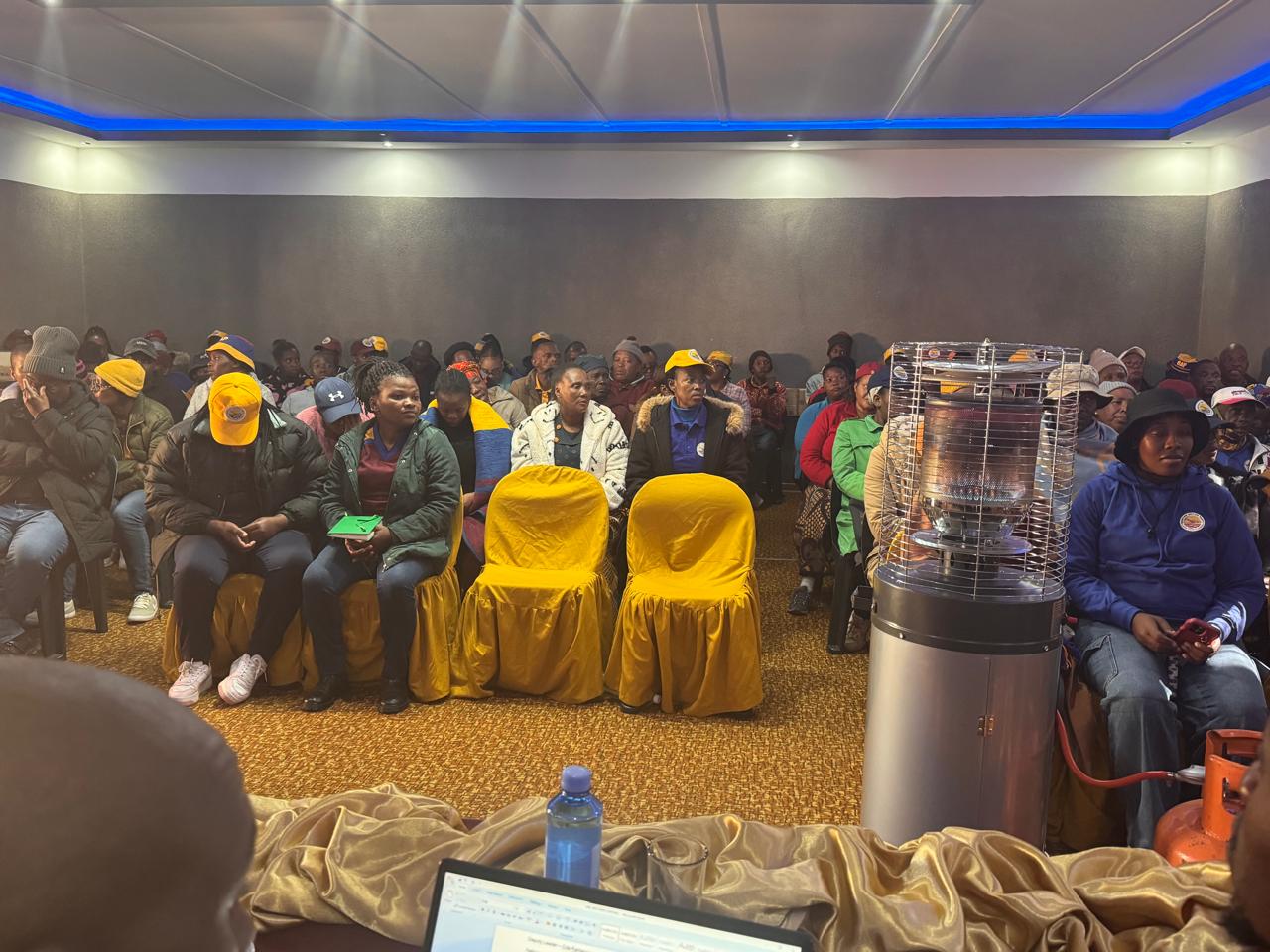
For too long, Lesotho has been caught in a cycle that many development economists call the “aid trap.” While international assistance has provided crucial support during times of crisis, our over-reliance on external funding has inadvertently weakened our capacity to chart our own course toward prosperity. Today, as proud Basotho, we must ask ourselves a fundamental question: How do we transform from aid recipients to economic partners on the global stage?
The Basotho Action Party believes the answer lies not in rejecting international cooperation, but in building the foundations of a self-reliant economy that works for every citizen, from the bustling streets of Maseru to the remote villages of our mountain highlands.
The Current Reality: Understanding Our Dependency
Lesotho currently receives hundreds of millions of maloti annually in foreign aid, making us one of the most aid-dependent countries per capita in the world. While this support has helped build schools, clinics, and infrastructure, it has also created several unintended consequences:
Weakened Government Capacity: When donor agencies bypass government systems to implement projects directly, our civil service loses opportunities to develop expertise and institutional knowledge. This perpetuates the perception that external organizations are more capable than our own institutions.
Distorted Priorities: Aid often comes with conditions that may not align with our most pressing needs. Projects are designed in donor capitals rather than Basotho communities, leading to initiatives that look good on paper but fail to address real challenges.
Brain Drain Within Our Borders: The highest-paying jobs often go to donor-funded projects, pulling our best talent away from government service and local businesses that could drive sustainable growth.
Dependency Mindset: Perhaps most damaging is the psychological impact—when communities and leaders look externally for solutions, we lose confidence in our own problem-solving abilities.
The Path Forward: Pillars of Self-Reliance
1. Harnessing Our Human Capital
Lesotho’s greatest resource is not water or diamonds—it’s our people. With one of the highest literacy rates in Africa, we have a educated population that, properly mobilized, can drive economic transformation.
Youth Skills Revolution: Instead of watching our young people migrate to South African mines or struggle with unemployment, we must invest in skills training that matches global market demands. This means vocational programs in digital technology, renewable energy installation, agribusiness management, and creative industries.
Diaspora Engagement: Thousands of skilled Basotho work around the world. We must create pathways for them to contribute to homeland development through investment, knowledge transfer, and business partnerships.
Women’s Economic Participation: Basotho women are already economic powerhouses, running the majority of small businesses and managing household finances. Removing barriers to their full participation in the formal economy could boost our GDP significantly.
2. Leveraging Our Strategic Advantages
Rather than viewing our landlocked status as a limitation, we must recognize the unique advantages of being completely surrounded by Africa’s most industrialized economy:
Becoming South Africa’s Switzerland: We can position ourselves as a hub for financial services, business registration, and regional headquarters for companies operating across Southern Africa.
Water Wealth: The Lesotho Highlands Water Project proves we can manage complex international partnerships. We must negotiate better terms for our water resources while developing our own water management expertise.
Tourism Transformation: Our mountain kingdom offers experiences unavailable anywhere else in the region. With proper infrastructure and marketing, tourism can become a major foreign currency earner.
3. Building Productive Partnerships
Self-reliance doesn’t mean isolation. It means engaging with international partners from a position of strength, with clear priorities and strong negotiating capacity.
Trade Over Aid: We must shift from receiving grants to engaging in mutually beneficial trade relationships. This requires improving our export capacity and reducing bureaucratic barriers to business.
South-South Learning: Countries like Rwanda, Botswana, and Vietnam have achieved remarkable development progress. We can learn from their experiences while adapting solutions to our context.
Private Sector Partnerships: Instead of relying solely on government-to-government aid, we should facilitate partnerships between Basotho businesses and international companies looking for reliable partners in the region.
4. Strengthening Our Institutions
Good governance is not just a political slogan—it’s an economic necessity. Strong institutions attract investment, reduce transaction costs, and create predictable environments for business growth.
Merit-Based Civil Service: We must end the practice of hiring based on political connections rather than competence. A professional civil service can design and implement development programs more effectively than any external consultant.
Transparent Resource Management: Whether it’s revenue from water exports, textile manufacturing, or mining, all citizens must know how government resources are being used. Transparency reduces corruption and builds trust necessary for economic cooperation.
Local Government Empowerment: Chiefs and community councils know their areas’ needs better than distant bureaucrats. Strengthening local governance creates space for community-driven development that addresses real priorities.
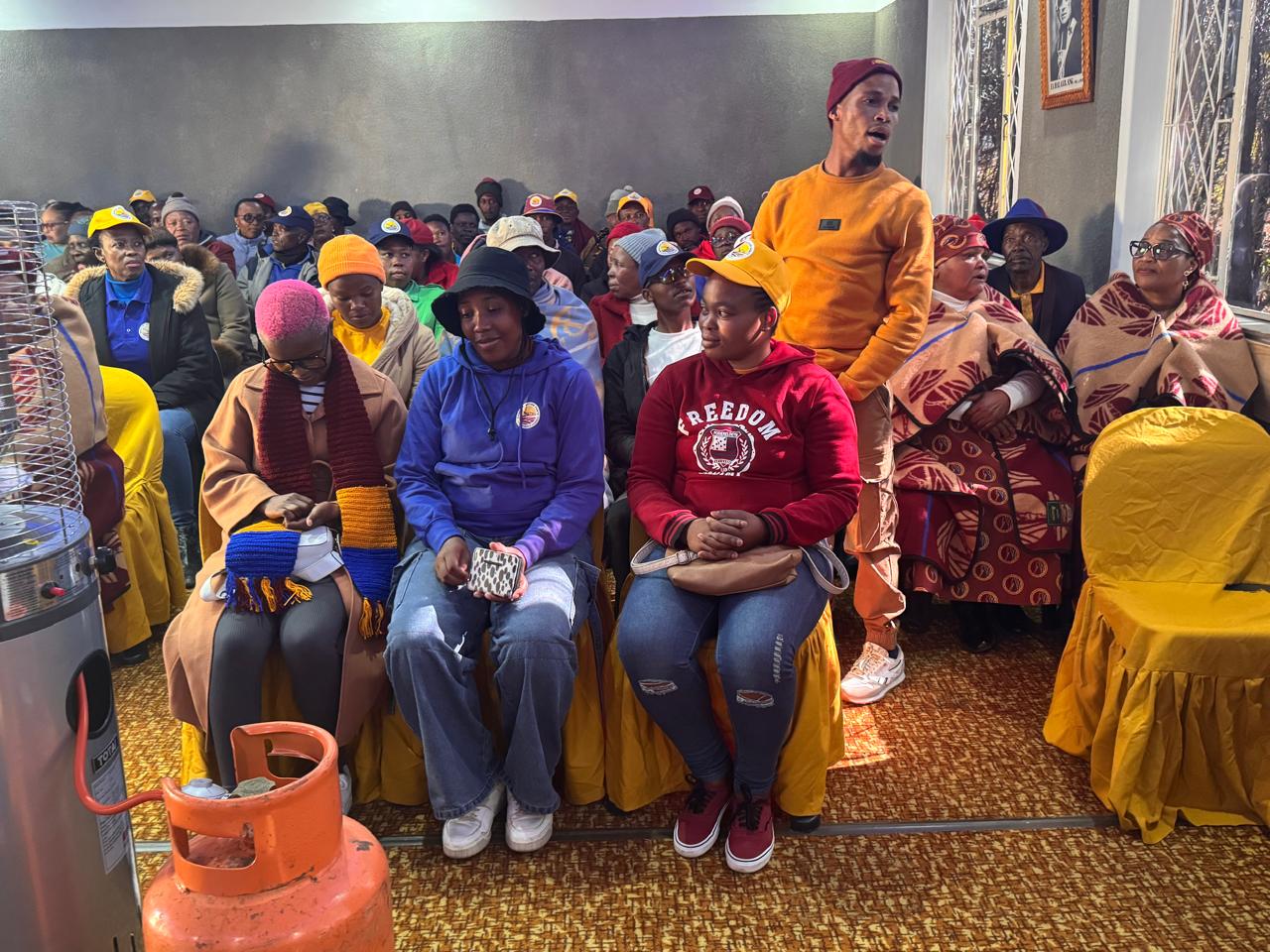
Practical Steps Toward Self-Reliance
Immediate Actions (1-2 Years)
Launch a national skills audit to understand our human capital strengths and gaps
Establish a Diaspora Investment Fund to channel remittances toward productive investments
Create one-stop business registration centers in each district
Implement transparent budgeting processes that show citizens exactly how taxes and aid money are spent
Medium-Term Goals (3-5 Years)
Achieve food self-sufficiency through modern agricultural techniques and better land use
Develop renewable energy capacity to reduce electricity imports
Build regional transportation and logistics hubs
Establish technical colleges focused on practical skills for economic growth
Long-Term Vision (5-10 Years)
Transform from aid recipient to development partner for other small states
Achieve middle-income status through diversified economic growth
Become a regional center for education and financial services
Export Basotho expertise in mountain agriculture, water management, and community development
The Role of Citizens in Building Self-Reliance
Government cannot achieve self-reliance alone. Every Mosotho has a role to play:
Entrepreneurs and Business Owners: Take calculated risks, hire locally, and reinvest profits in Lesotho rather than sending all earnings abroad.
Youth: Acquire skills that create value, start businesses that solve local problems, and resist the temptation to seek easy opportunities elsewhere.
Community Leaders: Support merit-based decision-making, hold elected officials accountable, and champion local solutions to local problems.
Diaspora Basotho: Share knowledge, invest in homeland opportunities, and serve as bridges to global markets and networks.
Overcoming the Skeptics
Critics will argue that aid dependency is too entrenched, that our market is too small, that our geography is too challenging. They said the same about Singapore, Switzerland, and South Korea—all small countries that achieved remarkable prosperity by maximizing their unique advantages.
The difference between aid dependency and self-reliance is not the presence or absence of international cooperation—it's the terms on which that cooperation occurs. When we engage as partners rather than supplicants, when we bring our own resources and capabilities to the table, when we have clear priorities and strong institutions, the entire relationship changes.
A Call to Action
Building a self-reliant Lesotho is not about rejecting help—it's about becoming the kind of country that others want to partner with rather than simply assist. It's about creating an economy where young Basotho see opportunity at home, where women can build businesses without systemic barriers, where traditional leaders work alongside modern institutions to drive community development.
This transformation requires political will, citizen engagement, and patient commitment to long-term thinking over short-term gains. It means choosing the difficult path of building capacity over the easy path of perpetual dependence.
The Basotho Action Party is committed to leading this transformation. We believe in the intelligence, creativity, and determination of our people. We believe that good governance, rule of law, youth empowerment, and community engagement are not just political promises—they are the practical foundations of economic independence.
The choice before us is clear: We can continue waiting for others to solve our problems, or we can roll up our sleeves and build the self-reliant Lesotho that our children deserve.
The time for dependency is over. The era of Basotho self-reliance begins now.
The Basotho Action Party is committed to transforming Lesotho through good governance, youth empowerment, and community-driven development. Join us in building a self-reliant nation that works for all Basotho.

